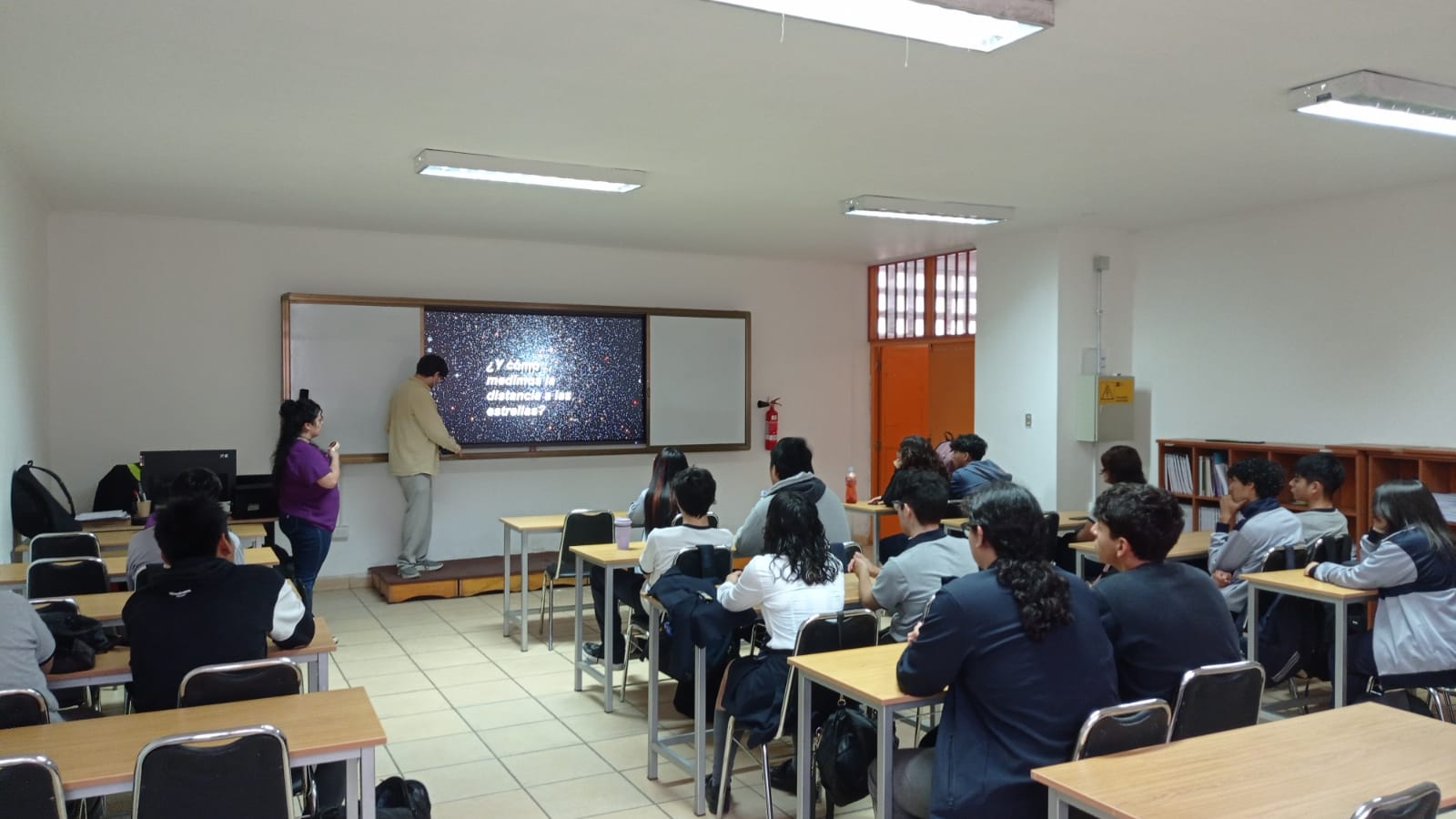
CATA participates in the launch of the Chile Pavilion at Expo Osaka 2025
The Center for Astrophysics and Related Technologies (CATA) participated in the launch of the Chilean pavilion for Expo Osaka 2025, marking the beginning of its presence at this global event. With a focus on innovation, technology transfer and astronomy as a driver of development, the institutions present seek to further highlight Chile as a center for astronomical research.
This Friday, the Chilean pavilion was officially presented at Expo Osaka 2025, a platform that will bring together more than 160 countries and expects the visit of more than 30 million people. In this milestone, CATA stood out as a key player, highlighting the impact of astronomical instrumentation and astrophysical research in the technological and industrial development of the country. Representing the institution were Elise Servajean, general manager of CATA, and Santiago Prat, leader of the Technology Transfer Unit (UTT).
“The launch of the Chilean pavilion was an enriching event, where the crossover between tradition and innovation was evident. Chile, with its focus on nature and native cultures, and Japan, with its futuristic vision based on technology, will find in the Expo a unique space for exchange. We are excited about CATA’s role on this international stage,” said Elise Servajean.
Under the slogan “Designing the society of the future for our lives”, Expo Osaka 2025 will be divided into three main areas: Pavilion World, Water World and Green World. Chile, within Pavilion World, will place special emphasis on astronomy as the axis of development and innovation.
In this context, CATA will play a leading role in the Astronomy Week, together with the Department of Astronomy of the University of Chile, a space dedicated to show why Chile is the astronomical capital of the world. Ezequiel Treister, director of CATA and academic at the Pontificia Universidad Católica highlighted the importance of the Center’s presence at this global event. “Our objective is to demonstrate that Chile is the epicenter of world astronomy, with the most privileged skies for observing the Universe and the most advanced observatories on the planet. But not only that, we want to highlight how frontier astrophysical research has boosted technological and industrial development, in addition to its impact on education and scientific culture,” commented the astronomer.
Elise Servajean added that CATA’s participation in Osaka not only seeks to make Chilean astronomy visible, but also to strengthen international collaboration and technological development. “It is not only about showcasing our work, but also about reaffirming our position as the world’s astronomical capital and demonstrating how the frontier science we do translates into technological advances that benefit society. Expo Osaka is a unique opportunity to highlight our contribution to global innovation,” emphasized the general manager.
Innovation and technology transfer: the contribution of CATA
Beyond its role in scientific dissemination, CATA will take advantage of Expo Osaka 2025 to consolidate strategic alliances with global institutions and explore new opportunities in technology transfer. The institution will present projects that have been developed in Chile with applications in different fields, from astronomy to industry.
Ezequiel Treister projects that this participation will open new doors for the institution. “This is a great opportunity to generate new collaborations and work alongside world leaders in technological development. We want to expand our networks and explore new projects that strengthen scientific innovation with real impact on society,” he said.
Chile’s participation in Expo Osaka 2025 will include cultural, scientific and business initiatives, with the aim of strengthening the country’s image in the Asia-Pacific region. In this context, CATA and the Department of Astronomy of the U. of Chile will play a key role, showcasing Chile’s advances in astronomy and technology transfer.
With its presence in Osaka, the Center for Astrophysics and Related Technologies reaffirms its leadership in astronomical research and its commitment to innovation, highlighting Chile’s role in the exploration of the universe and the development of technologies for the future.
Recent news
-
 Publicado el: 12/12/2025Call for applications for the 2026 “Cata Emprende” program now open
Publicado el: 12/12/2025Call for applications for the 2026 “Cata Emprende” program now open -
 Publicado el: 05/12/20252026 Applied Research Fund opens
Publicado el: 05/12/20252026 Applied Research Fund opens -
 Publicado el: 01/12/2025The astronomical experience was part of the 4th Ladera Sur Festival.
Publicado el: 01/12/2025The astronomical experience was part of the 4th Ladera Sur Festival. -
 Publicado el: 25/11/2025Students from Angol held an astronomy workshop with CATA
Publicado el: 25/11/2025Students from Angol held an astronomy workshop with CATA -
 Publicado el: 17/11/2025Astronomy outreach reached communities in the Arica and Parinacota region
Publicado el: 17/11/2025Astronomy outreach reached communities in the Arica and Parinacota region
Categories list
- Acknowledgments 21
- Astrobiology 6
- AstroCluster 1
- Black holes 18
- Corporativo 57
- Cosmology 5
- Descubrimientos 22
- Disclosure 74
- Exoplanets 13
- Extension 6
- Galaxies 21
- Galaxies formation 5
- Inter y Transdisciplina 4
- Local Universe 16
- Publications 6
- Sin categorizar 34
- Solar System 21
- Stellar formation 8
- Technology 16
- Technology Transfer 18




